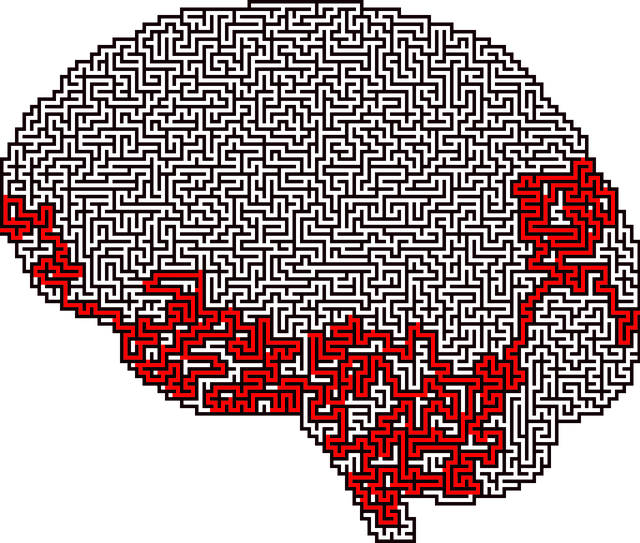Westminster OCD Therapy focuses on stress reduction as a key strategy to combat mental health issues like OCD, depression, and cardiovascular diseases. Their workshops utilize evidence-based techniques, Mind Over Matter principles, interactive activities, group discussions, and practical tools to empower individuals with effective stress management skills. By combining cognitive-behavioral therapy (CBT), exposure and response prevention (ERP), mindfulness practices, and continuous assessment, they help participants develop coping strategies, build inner strength, and enhance their quality of life, specifically addressing challenges related to Obsessive Compulsive Disorder (OCD).
Stress management workshops are powerful tools for personal growth and well-being. This comprehensive guide explores how organizations can effectively navigate and implement such sessions, focusing on techniques to understand and combat stress, with a specific emphasis on its impact on mental health.
We delve into designing engaging workshops, covering strategies to manage Westminster Obsessive Compulsive Disorder (OCD) therapy, ensuring success in facilitating meaningful discussions and positive outcomes for participants.
- Understanding Stress and Its Impact: A Comprehensive Overview
- Designing Effective Stress Management Workshops
- Implementing and Evaluating Westminster OCD Therapy Sessions
Understanding Stress and Its Impact: A Comprehensive Overview

Stress is a ubiquitous part of modern life, yet its profound impact on both mental and physical health often goes overlooked. It’s crucial to understand that stress isn’t merely an occasional response to challenging situations; chronic stress can lead to severe consequences, including anxiety disorders like Obsessive Compulsive Disorder (OCD), depression, cardiovascular diseases, and weakened immune systems. This comprehensive overview aims to demystify stress and its far-reaching effects, highlighting the need for effective management strategies.
Westminster OCD Therapy recognizes that stress reduction methods play a pivotal role in addressing mental illness stigma reduction efforts. By employing Mind Over Matter principles, workshops aim to empower individuals with tools to navigate life’s stressors healthily. Through evidence-based techniques and supportive environments, these sessions foster resilience, enabling participants to cultivate a profound sense of control over their emotional well-being.
Designing Effective Stress Management Workshops

Effective stress management workshops require a thoughtful design approach to cater to diverse needs and preferences. At our Westminster OCD therapy center, we specialize in creating workshops that go beyond surface-level relaxation techniques. Our strategy involves a structured yet flexible curriculum focused on emotional regulation and mood management. We incorporate interactive activities, group discussions, and practical tools tailored to help participants develop resilience against stress and burnout prevention strategies.
The key to a successful workshop lies in fostering an inclusive environment where individuals can openly share their experiences. By combining evidence-based practices with real-world applications, we ensure our workshops offer tangible takeaways for day-to-day life. Whether it’s mindfulness exercises, cognitive behavioral techniques, or stress-reducing habits, our goal is to empower attendees to take control of their mental well-being, just like how our Westminster OCD therapy center supports individuals in overcoming obsessive-compulsive disorder.
Implementing and Evaluating Westminster OCD Therapy Sessions

Implementing Westminster Obsessive Compulsive Disorder (OCD) Therapy sessions involves a structured approach to addressing the unique challenges posed by OCD. These workshops are designed to help individuals gain insights into their condition, develop coping strategies, and build inner strength. The therapy sessions typically incorporate evidence-based techniques such as cognitive-behavioral therapy (CBT), exposure and response prevention (ERP), and mindfulness practices tailored to manage obsessions and compulsions effectively.
Evaluating the success of these workshops is crucial for ensuring their ongoing effectiveness. Regular assessments, including pre-and post-session surveys and one-on-one consultations, help gauge participants’ progress in terms of Anxiety Relief and Crisis Intervention Guidance. Feedback mechanisms allow for continuous improvement, refining the curriculum to better support participants’ journeys towards inner strength development and improved quality of life.
Stress management workshops, as highlighted in this article, are powerful tools for improving mental well-being. By understanding stress and its impact, organizations can design effective sessions that target common issues like Westminster Obsessive Compulsive Disorder (OCD) therapy. Implementing these workshops and evaluating their outcomes is essential to ensure they meet participants’ needs and foster positive change. Through structured programs and tailored approaches, organizations can create supportive environments, enhancing employees’ resilience and overall productivity.













